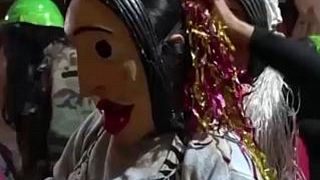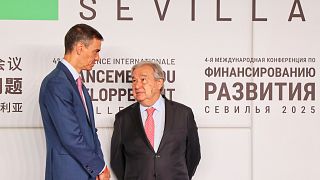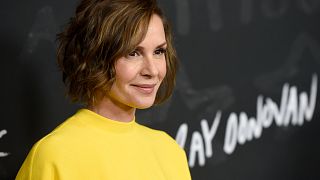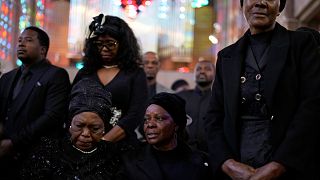South Africa
Nelson Mandela’s humble posturing is reflected in the credit he gives to the lieutenants he had during the apartheid struggle.
Even though he was and is still considered as the grand architect of a united South Africa, his policy of rapprochement with the white oppressor, before and after he came to power in 1994, has been variously appreciated.
And surely, that is nevertheless the best image that the world has kept of this global statesman and giant of African history.
Beyond the bitter struggles and negotiations with the white power for the abolition of apartheid, after 1994, South Africa started a new socio-economic, political and cultural journey.
A journey that included national reconciliation, the fair distribution of wealth and international repositioning. And certainly in Madiba, the rainbow nation had the right man in the lead.
“For the people of South Africa, for those he inspired around the globe — Madiba’s passing is rightly a time of mourning, and a time to celebrate a heroic life,” US President Barack Obama
Balancing the economic and social scales
Upon taking power, Nelson Mandela embarked on an ambitious reconstruction and development program (RDP). A plan meant to reduce poverty and address the serious lack of social services and to seal infrastructural cracks in the then lopsided society.
Housing policy, which is one of the strengths of this program allowed five million South Africans to receive shelter between 1994 and 2001. Between the same time, more than four million people gained access to drinking water, while in 1999, over 250 000 people had received land under the agrarian reform.
Five hundred new clinics were also built. Various grants were also awarded to pensioners, disabled and pregnant women and health care for children under six years was now free.
“Let us pay tribute to Nelson Mandela: The ultimate symbol of dignity and unwavering dedication to the revolutionary struggle, to freedom and justice , a prophet of unity, peace and reconciliation,” Cuban President Raul Castro
Diplomatically
A united South Africa now moved to take a rightful spot in international circles. With the stature of a Mandela backing the rainbow nation, that diplomatic task proves easier to manage since the April 1994 elections, the country was classified as a “moral example” that has overcome its differences.
Therefore, Mandela was asked for numerous mediations, including that of the African Great Lakes region. However, according to some observers, the balance sheets of these mediations remain mixed.
“Mr. Mandela was more than one of the greatest pillars of our time,he was one of our greatest teachers. He taught by example. He sacrificed so much … for freedom and equality, for democracy and justice.” United Nations Secretary-General Ban Ki-moon
Politically
Mandela had appointed former president Frederik de Klerk, vice president of South Africa. A year after accepting to share the prestigious 1993 Nobel Peace Prize with him for their respective roles in the abolition of apartheid.
Still in line with bridging the political gap, there was the establishment of the Truth and Reconciliation Commission which was led by Anglican Archbishop Desmond Tutu. This platform afforded oppressors of old the opportunity to confess their “sins” and further enabled many guilty individuals to obtain amnesty.
One of Mandela’s unifying moments of the nation was during the final of the 1995 rugby tournament when he wore the jersey of the ‘‘white’‘ Springbok team to join in the celebration.
However, the policies initiated by Nelson Mandela during his single term (1994-1999) did not resonate positively with everyone, not even with some members of his party, the Africa National Congress (ANC).
Mandela’s critics accused him being too diplomatic with the whites who to some members had benefited from overly lenient justice. Also, those ANC supporters expressed displeasure at the structure of the land reform meant to restore blacks lands forcibly taken in 1913 by the law on indigenous lands.
The abandonment of the nationalization of large companies due to some International Monetary Fund rules proposing a more liberal policy, also was among the disgruntled claims.
In all, for the latter, Mandela’s economic policy was far from the principles of social justice promoted by the party.
“His life was just an extraordinary journey, from beginning to end, with such an effect, both on his own country, and on the rest of the world. So, enjoy today, enjoy and celebrate what he achieved. We may not see his like again,” former British Prime Minister Gordon Brown.
Mandela, a global and African legacy
Madiba is a man of many parts, who represents different values and principles to different people at home in South Africa, across the African continent and globally.
Certainly he could not solve all the problems of South Africa in five years as president, but he led the rainbow nation from apartheid and left it on a strong footing for his successor Thabo Mbeki, Mandela left the country as a strong democracy and with a strong economy, till date one of the strongest economies in Africa.
“Mr. Mandela was the pride of the African people, he has dedicated his entire life to the development and progress of the African continent.” Chinese Vice President Li Yuanchao.
NOTE: This article was originally published on July 25, 2016



![Nelson Mandela [Part 3]: Local and global politician, top quotes at his funeral](https://static.euronews.com/articles/339208/400x225_339208.jpg)









01:04
South Africa: ANC partner quits key govt initiative as new spat hits coalition
Go to video
African gut study reveals urbanization threatens microbial diversity
01:54
South Africa's independent mechanics join forces to compete with big companies
01:48
South Africa launches vaccination drive to combat foot-and-mouth disease outbreak
01:00
Pix of the Day: June 19, 2025